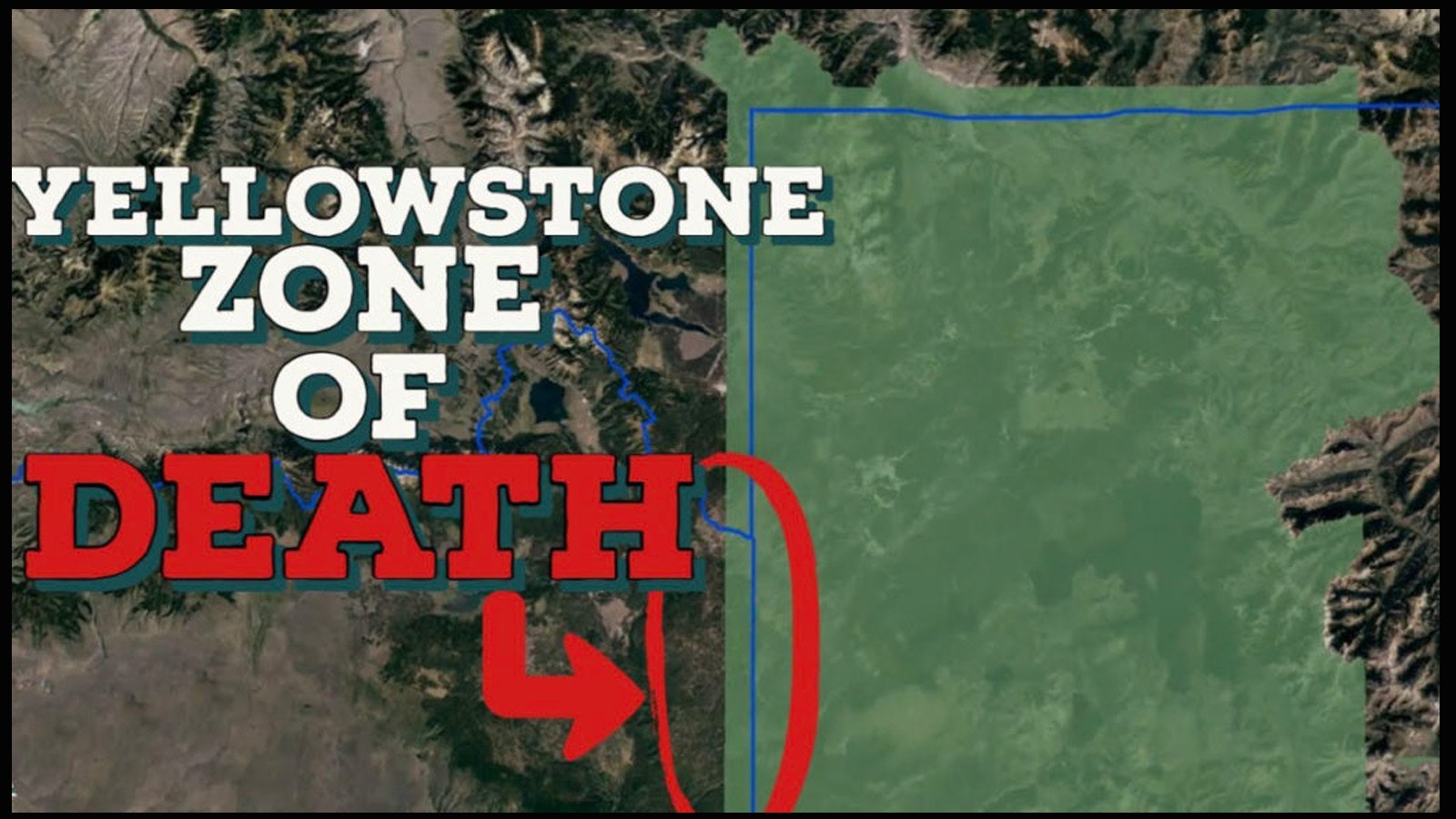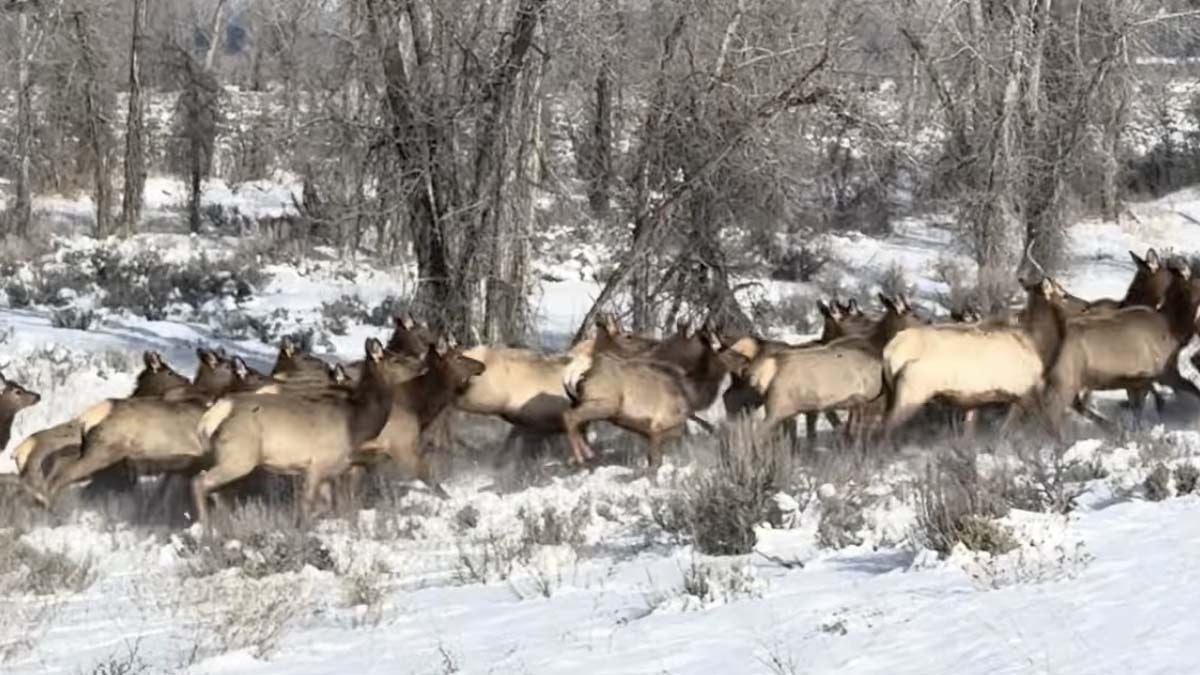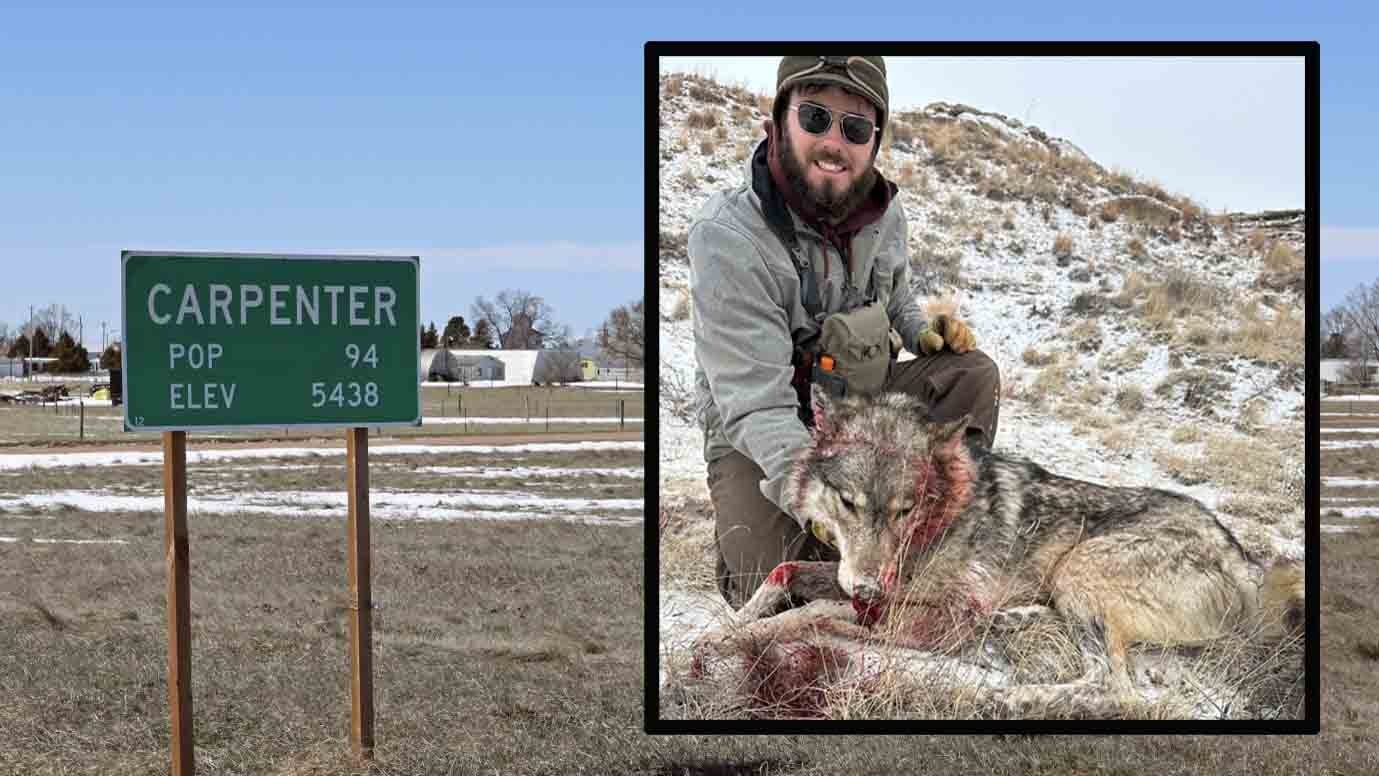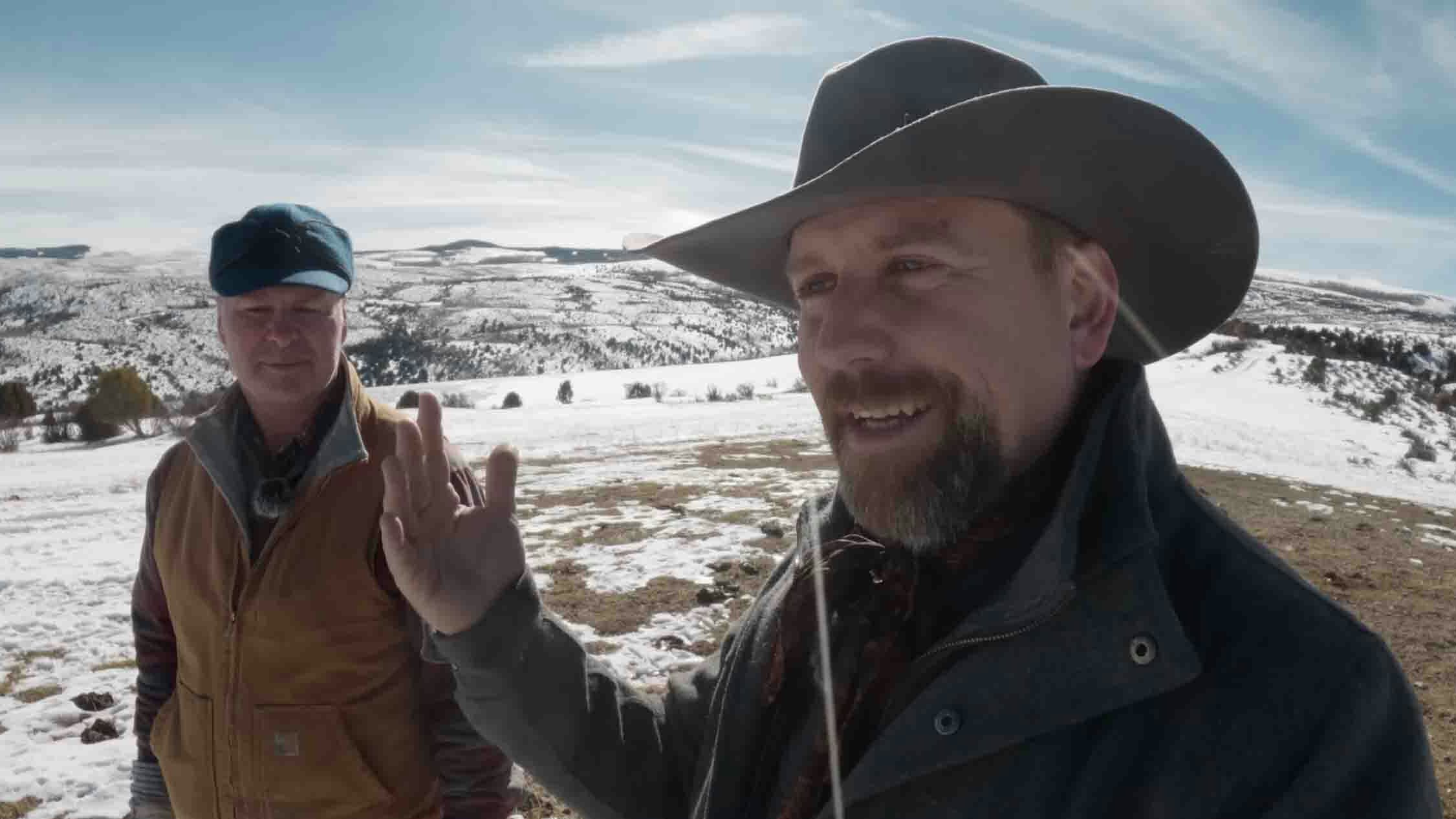A remote swath of Yellowstone National Park’s backcountry dubbed “the Zone of Death” could, at least in legal theory, be the one place in the United States someone could get away with murder.
Nobody’s yet put that to the test yet – at least not in real life.
Wyoming author C.J. Box based his 2007 novel “Free Fire” on a character committing murder in the Zone of Death, then claiming immunity from prosecution based on the area’s jurisdictional void.
The area in question is a 50 square-mile strip of land on the western side of Yellowstone in Idaho that runs along the Wyoming state line where the park spills over into Idaho.
In the book, “something else bad happens to him (the character), but he’s not convicted of murder,” Box told Cowboy State Daily.
If such a case were to happen in the real world, it would likely fall to U.S. District Court Magistrate Judge Stephanie Hambrick’s court in Mammoth to figure out how to prosecute the murder.
Hambrick said she’s read “Free Fire” and told Cowboy State Daily that, “The book was interesting.”
‘The Perfect Crime’
The theory of the Zone of Death apparently started with a 2005 article titled “The Perfect Crime” written by Brian C. Kalt of the Michigan State University College of Law and published in the Georgetown Law Journal.
In it, Kalt asserts that it’s technically possible to get away with crimes, including murder, in the Zone of Death.
That’s because the Sixth Amendment of the Constitution states that federal crimes must be prosecuted under the state and district in which they were allegedly committed. The entirety of Yellowstone is under the U.S. District of Wyoming – including the 50-square-mile strip of land technically in Idaho known as the Zone of Death.
So, if a defendant asked for a trial, it would be impossible to draw a Wyoming jury from within 50 miles. That’s because nobody lives in the Zone of Death or within 50 miles of it in Wyoming, Kalt asserted.
Made For A Great Story
Box said he first heard about the Zone of Death theory when he was on a book promotion tour at about the same time Kalt’s article was published.
“It got quite a bit of notice at the time,” so Box said he decided to base one the novels in his hugely popular Joe Pickett series on Kalt’s theory of the perfect crime in the Zone of Death.
Box said he was intrigued by the originality of such a potential defense and imagined a character devious and crafty enough to try pulling it off.
In “Free Fire,” the antagonist murders some campers in the Zone of Death, then turns himself in, counting on the jurisdictional void to protect him from prosecution.
Since the novel came out, the Zone of Death theory has gained a cult following, Box said.
“It seems like every couple of years, somebody gets ahold of it and everybody’s talking about it again,” he said of the book.
Most recently, there has been some speculation that the “Train Station” – a remote cliffside in Wyoming where characters in the popular streaming television series “Yellowstone” kill and dump the bodies of people they want to be rid of – is based on the Zone of Death.
Turn It Over To Idaho?
At least are some think that the possibility of somebody getting away with a killing in the Zone of Death is a grave enough problem to warrant congressional attention.
Idaho state lawmaker Rep. Colin Nash, D-Boise, told Cowboy State Daily that he thinks the solution would be to bring that part of Yellowstone in Idaho into the jurisdiction of the Federal District of Idaho.
“If a jury must be called from the state and district in which a crime allegedly occurred, we could seat a jury from some of the communities in Idaho that are within 50 miles of that area of Yellowstone Park,” he said.
That would take an act of Congress because it would involve changing the borders of federal court districts, he said.
Nash sponsored a bill that passed the Idaho Legislature last year to send a formal request to Congress to close the Zone of Death loophole by moving that section of Yellowstone under Idaho’s jurisdiction, he said.
As of this month, “we still haven’t heard back from Congress” regarding the matter, he said.
Wyoming Ain’t Giving It Up
Wyoming probably wouldn’t be keen on the idea of giving up jurisdiction over the Zone of Death, former Gov. Matt Mead told Cowboy State Daily.
Wyoming would like to see the Yellowstone district stay intact and under its jurisdiction, said Mead, who served as the U.S. Attorney for the District of Wyoming from 2001-2007.
“It’s something Wyoming is proud of,” Mead said.
Christopher Crofts of Cheyenne, who held that office from 2010-2017, said the same.
The question of the Zone of Death being moved under Idaho’s jurisdiction “is a political issue, not a legal issue,” he told Cowboy State Daily. “Politically, Wyoming has been possessive. Yellowstone is Wyoming’s.”
Could It Really Happen?
Mead said the possibility of a murderer trying to use the Zone of Death defense never really concerned him while he was the U.S. Attorney.
Crofts agreed.
“We considered it an interesting theory,” he said. “It wasn’t something that kept me up at night.”
If somebody tried testing the Zone of Death theory, they’d probably get more than they bargained for, Crofts added.
“I wouldn’t recommend it, just like I wouldn’t recommend walking around on the crusty earth around the edges of the Yellowstone hot polls,” he said.
Hambrick, who served as a prosecutor in the jurisdiction before she became the magistrate judge, said she’s likewise not really worried about somebody trying to get away with murder on her watch.
It might be possible for a defense attorney to argue before her for a dismissal of charges on the grounds of there being no real jurisdiction, she said. But those arguments would have to hold up against the prosecution’s claims.
“It (the Zone of Death) is so remote and so small, I’m not particularly concerned about,” she said. “I don’t really agree that there’s a lawless area in that part of the park.”





